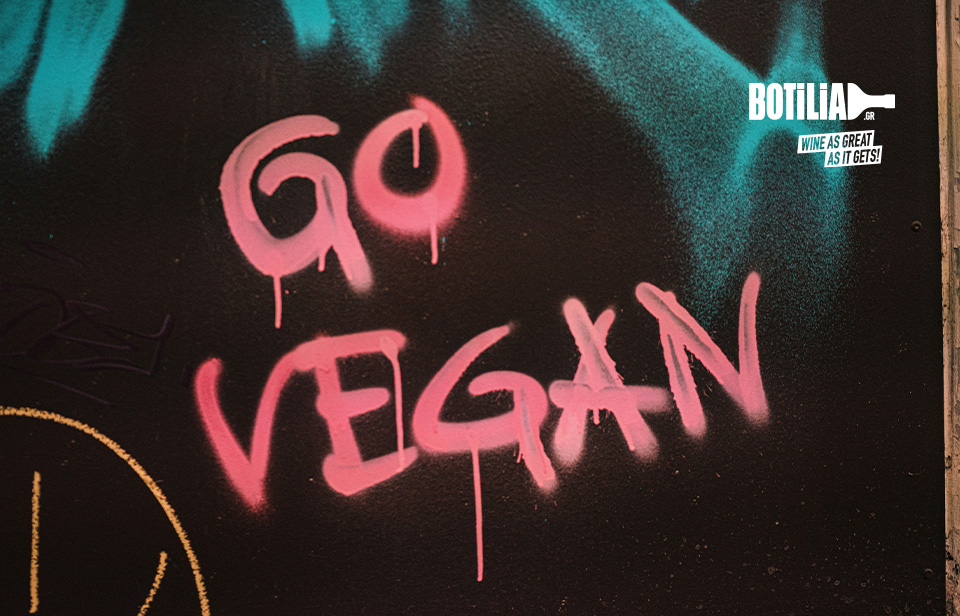VEGAN WINES AND WORLD VEGAN DAY!

World Vegan Day was established in 1994 by Louise Wallis, then president of the Vegan Society in the United Kingdom. Louise Wallis chose this date to honor the 50th anniversary of the organization’s founding and the creation of the terms “vegan” and “veganism,” without knowing the exact date of its establishment. So she decided to designate November 1st. Little did she know, of course, that this would coincide with World Xinomavro Day…
A deeper meaning beyond everyday preferences
Vegans embrace a lifestyle that rejects the exploitation and abuse of animals, promoting plant-based nutrition and sustainability. Veganism is not just a dietary choice or a trend it’s a profound ethical and philosophical stance toward the world, one that truly deserves our respect and admiration. Their daily lives are free from all animal products, across every aspect of living. Clothing, cosmetics, cleaning products, and anything involving animal exploitation for any purpose is simply excluded.
Whether it’s food, entertainment, fashion, or even scientific research, their core principle is to avoid causing harm to any living beings, in the name of respecting life and the freedom of all creatures—while also minimizing their ecological footprint.
And what about wine?
Wine, although made from grapes and seemingly vegan-friendly at first glance, often involves animal-derived byproducts during its production. One of the final stages, called fining, is when the wine is clarified from cloudiness and microscopic particles.
Until a few years ago, this was done exclusively using animal proteins such as casein (from milk), albumin (from eggs), gelatin (from animals), and isinglass (from fish). These substances acted like magnets, attracting the particles, weighing them down, and causing them to settle at the bottom of the tank—leaving the wine clear and bright. While these agents don’t remain in the final product, the possibility of trace residues makes the wine unsuitable for vegans and vegetarians.
As awareness around veganism grows, more wineries both in Greece and abroad are turning to techniques that align with the vegan lifestyle, producing more vegan wines, even if the process is more costly.
Traditional fining agents can now be replaced with alternatives like bentonite (a natural clay) and activated charcoal, which achieve the same result without any animal residues. Some producers even choose not to fine their wines at all, allowing them to stabilize naturally. In both cases, the label should clearly indicate this!
Is there any certification?
Absolutely! In fact, certification is now a relatively straightforward process, involving a thorough inspection of the entire wine production line from vineyard to bottling. Once obtained, the wine must be clearly labeled with terms such as vegan, unfined, or unfiltered, prominently displayed on the bottle.
The coincidence of World Vegan Day with World Xinomavro Day carries a touch of irony but also great relief. It reveals how winemakers are responding to the demand for vegan wines that respect consumers’ ethical choices. Many Xinomavro wines are now produced using plant-based or mineral fining agents, making them friendly to all, without compromising flavor or quality.
So yes, you can find these and many more vegan wines HERE!
This article is a special dedication to my three vegan friends, who for years kept asking me: “Isn’t there a single vegan wine I can drink?!”
Here you go. Enjoy responsibly!
Christina Tsogka
vegan
wines
sustainability
environmental sensitivity
whites
ecological footprint
reds
rose
greek
environment
animal protection
environmental protection


